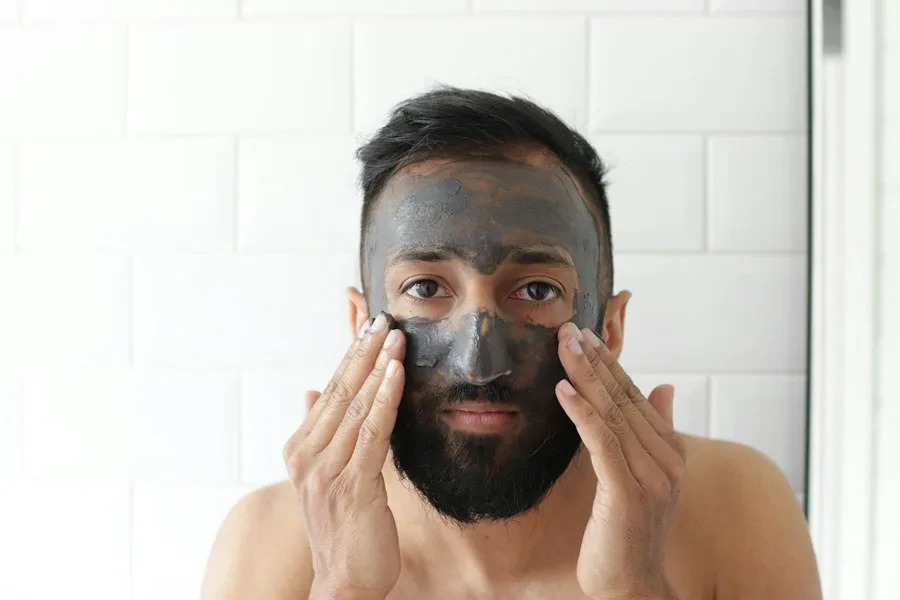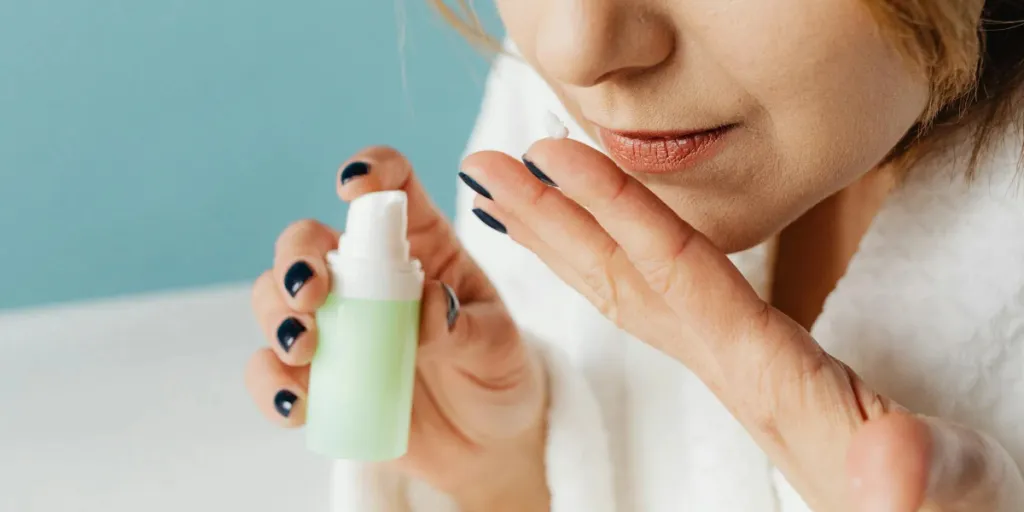Self-care has become a top priority for many consumers over the last several years, particularly as a result of the pandemic in 2020. In fact, between 2019 and 2020, Google Trends shows a 250% increase in searches related to self-care. This cultural shift presents an immense opportunity for beauty brands. Rather than just selling products, brands can position themselves as partners in consumers’ self-care journeys, offering solutions that address their physical and emotional needs.
So, let’s talk about self-care, how it relates to the beauty industry, and how you can use it to market your products. Of course, it’s critical to remember that your marketing efforts should be genuine, so consider what self-care means to you and how you can incorporate it into your everyday business practices.
Table of Contents
What is self-care, and how does it relate to the beauty market?
Market for self-care products
How to use self-care to market beauty products
What is self-care, and how does it relate to the beauty market?
Self-care refers to the practice of taking deliberate actions to preserve or improve one’s physical, mental, and emotional well-being. It encompasses many activities, from simple daily rituals like skincare routines and exercise to more indulgent treats such as spa days or meditation sessions. At its core, self-care is about prioritizing oneself and engaging in activities that promote health, relaxation, and overall happiness.
In recent years, self-care has become increasingly prominent in popular culture, driven by a growing awareness of the importance of mental health and well-being. This cultural shift has had a profound impact on many industries, including the beauty market.
Traditionally, the beauty market has been primarily focused on physical appearance, offering products designed to enhance or alter one’s appearance. However, as the self-care movement has gained momentum, the beauty market has evolved to align more closely with the principles of holistic well-being.
Today, many consumers view skincare and beauty routines not just as a means of looking good but also as an essential component of their self-care rituals. From indulgent face masks and luxurious bath products to nourishing skincare formulations, beauty products are increasingly marketed and consumed as tools for self-care and self-expression.
Causes of the self-care shift in the beauty market
- Wellness culture: With the growth of the wellness industry, consumers are increasingly seeking products and experiences that promote holistic well-being. Beauty brands have responded by incorporating ingredients and formulations emphasizing health and nourishment, catering to consumers’ desire for products that support their overall wellness goals.
- Mind-body connection: There is a growing recognition of the interconnectedness between physical appearance and mental and emotional well-being. Many consumers view their beauty routines as an opportunity to care for their skin and nurture their mental health by engaging in mindful, relaxing rituals.
- Self-expression and empowerment: For many individuals, beauty routines serve as a form of self-expression and empowerment. Whether through experimenting with makeup looks or indulging in skincare rituals, consumers use beauty products to express their creativity, boost their confidence, and assert their identity.
- Community and connection: The beauty community, particularly on social media platforms, has become a source of inspiration, support, and camaraderie for many consumers. Through sharing tips, recommendations, and personal experiences, individuals connect with others who share their passion for beauty and self-care, creating a sense of belonging and community.
Self-care has become deeply intertwined with the beauty market, shaping consumer preferences, behaviors, and attitudes toward beauty products. By embracing self-care principles and aligning marketing strategies accordingly, beauty brands can effectively engage with consumers, foster meaningful connections, and drive brand loyalty in an increasingly wellness-conscious marketplace.
Market for self-care products
The global wellness industry is valued at over US $4.5 trillion, indicating a seismic shift towards prioritizing self-care globally. At the same time, the beauty and personal care market worldwide is projected to generate a revenue of US $646.20 billion in 2024, with a compound annual growth rate (CAGR) of 3.33% between 2024 and 2028.
How to use self-care to market beauty products
Your business is likely already selling products that appeal to users seeking self-care. Let’s look at some marketing strategies you can use to increase sales.
1. Create a self-care-centric brand narrative
To effectively market beauty products within the realm of self-care, brands must first develop a narrative that resonates with their target audience. This narrative should emphasize the transformative power of self-care and position the brand as a facilitator of holistic well-being.
For instance, Dove’s “Real Beauty” campaign challenged traditional beauty standards by celebrating diversity and promoting self-acceptance. By aligning its brand message with the principles of self-care and empowerment, Dove not only attracted a loyal customer base but also sparked meaningful conversations around beauty and self-image.
While we still have a long way to go in the beauty industry when it comes to challenging beauty standards, every step that’s taken toward inclusivity is important.
2. Be a trusted authority in the industry
In addition to promoting products, beauty brands can add value to consumers’ lives by offering educational resources and support related to self-care. Whether through blog posts, tutorials, or virtual events, brands can empower consumers to make informed choices about their skincare and wellness routines while fostering a sense of community and belonging.
Statistics show that 68% of consumers are more likely to purchase from a brand that provides educational content, highlighting the importance of offering value beyond product promotions. By positioning themselves as trusted sources of information and guidance, beauty brands can establish themselves as allies in consumers’ self-care journeys, ultimately driving loyalty and advocacy.
For example, skincare brand The Ordinary has gained a loyal following by demystifying skincare ingredients and formulations through its educational blog and social media channels. By equipping consumers with knowledge and resources, The Ordinary has empowered them to take control of their skincare routines and make informed decisions about which products best suit their needs.
Tip: Be upfront about your ingredients. More than ever, consumers want to know exactly what’s in their products.
3. Connect with consumers on a personal level
Consumers are looking for brands that are genuine and authentic. Be real and imperfect with your audience; beauty consumers are sick of the idea of striving for perfection.
Social media is a great place to connect with potential customers personally. Take the time to create honest and engaging social media content, and remember to engage with people in the comments.
Another great way to build connections is through user-generated content. User-generated content (UGC) in the beauty industry refers to any form of content—such as photos, videos, reviews, testimonials, or social media posts—created by consumers rather than the brand itself.
UGC often features everyday people rather than models or influencers, making it more relatable to the average consumer. When people see others like themselves using and enjoying a product, they are more likely to feel a connection and envision themselves using it as well. Additionally, encouraging users to create and share content fosters a sense of community and belonging among customers. When consumers see their photos or reviews featured by a brand, they feel valued and are more likely to engage with the brand and its community.
4. Partner with influencers and wellness experts
Influencer marketing has become a cornerstone of beauty brand strategies, allowing companies to reach new audiences and build credibility through trusted voices. When it comes to self-care, partnering with influencers and wellness experts can lend authenticity to a brand’s message while providing valuable insights and recommendations to consumers.
Statistics show that influencer marketing delivers 11 times higher ROI than traditional forms of digital marketing, making it a lucrative avenue for beauty brands. By collaborating with influencers who embody the principles of self-care and wellness, brands can amplify their message and foster genuine connections with their target audience.
For example, skincare brand Drunk Elephant has built a cult following by partnering with skincare experts and influencers who advocate for a simplified, “clean” approach to beauty. By aligning themselves with trusted voices in the wellness community, Drunk Elephant has positioned its products as essential tools for achieving healthy, radiant skin as part of a holistic self-care routine.
5. Don’t only market to women

Traditionally, the beauty industry has primarily targeted women, leading to the misconception that skincare and self-care are exclusively feminine pursuits.
The men’s grooming industry has experienced significant growth in recent years, driven by changing attitudes towards masculinity and an increased awareness of the importance of personal grooming and self-care among men. In 2020, the global men’s personal care market was valued at US $124.8 billion, and by 2030, it’s projected to reach US $276.9. The global men’s grooming products market was valued at US $202.6 billion in 2022 and is projected to grow at a CAGR of 8% from 2023 to 2030.
The skincare segment dominated the market, accounting for a share of around 33.3% in 2022. Increasing awareness regarding grooming and personal hygiene has been driving the demand for men’s skincare products.
So, it’s important to market beauty and self-care products to everyone, regardless of gender. However, men have unique skin care needs and concerns that may differ from those of women due to differences in skin physiology, lifestyle factors, and grooming habits.
By developing and marketing self-care beauty products specifically tailored to men’s needs, brands can address these unique concerns and provide solutions that resonate with male consumers.
Want to learn more about self-care for men? Read about some of the trends here.
Final thoughts
As consumers continue to prioritize their mental, emotional, and physical well-being, beauty brands that embrace the principles of self-care and align their marketing strategies accordingly will not only thrive in the marketplace but also make a meaningful impact on the lives of their customers. By fostering genuine connections and providing value beyond product promotions, these brands can become trusted allies in consumers’ quests for beauty, health, and happiness.




